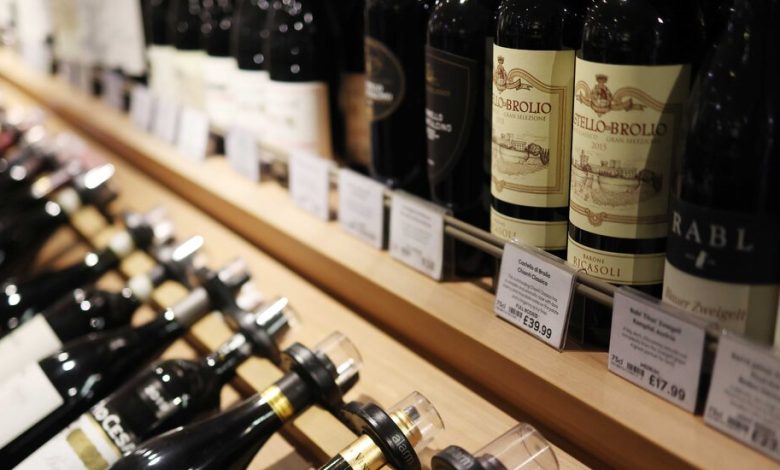A Pint of Wine? Britain Plans to Bring Back an Old-Fashioned Measure.

In 2024, the Brits will be able to drink like Winston Churchill again.
The government announced on Wednesday that it would allow stores and pubs to sell pints of wine, famously said to be the former prime minister’s favorite quantity of champagne.
What? But also, why?
It’s a side effect of Brexit, Britain’s official exit from the European Union in 2020, after which, among other things, the country no longer had to conform to European rules about weights and measurement.
In the announcement introducing pint-size wine bottles on Wednesday, Britain’s Conservative government boasted that the move was part of the country’s “new Brexit freedoms.”
Buckle up, because the numbers are about to get a little weird.
Beer, wine and liquor are sold across borders, and while the liquids may not change from one country to the next, their containers sometimes do, according to measurements set out centuries ago by governments trying to regulate their sale. Most standard bottles of wine hold 750 milliliters, or about five glasses, but there are several not-so-standard options as well.
Britain’s traditional imperial system of measurements was codified in 1824, when the British Weights and Measures Act standardized the use of units, including the gallon, pound and yard. The British government began to introduce the metric system on a voluntary basis in 1965, but after the country joined the European Economic Community, manufacturers had to display metric measurements in addition to the traditional imperial ones.
The imperial pint — 568 milliliters, or just under 20 imperial fluid ounces — was one of Britain’s cherished traditional measures. (Not to be confused with the American definition of a pint, which is 473 milliliters, or 16 U.S. ounces and will not feature any more in this article.)
Its closest approximation during the E.U. years was the 500-milliliter bottle, which is two-thirds the size of a standard bottle and holds about three glasses of wine. Those bottles — less than two ounces smaller than the pint-size ones — remain common in British stores, as do a few other sizes.
What’s behind those 68 extra milliliters
After Brexit, the British government began conducting a review of European regulations that it wanted to roll back. Wednesday’s announcement of the wine pint came after about 100,000 people responded to a government consultation on whether they wanted to return more broadly to the old-fashioned imperial measurement system (things like inches, miles and gallons instead of meters, kilometers and liters), which hasn’t been in official use for decades.
(In an interview with the British newspaper The Daily Mail in 2019, former Prime Minister Boris Johnson said that using the imperial system was an “ancient liberty.”)
The government said it had decided against legislative measures after only 1.3 percent of respondents said they’d be open to bringing the imperial system back.
And so while Britain will continue to use the metric system for other food and drinks, the pint-size bottle of wine is something of a symbolic gesture.
Flaunting the country’s “long and proud history” with imperial measures, the government promised that the extra 1.8 ounces of wine would “help to boost innovation, increase business freedoms and improve choice for consumers.”
Would it?
A 500-milliliter bottle of wine would be sellable only in the British market, which is smaller than that of many European countries. There are roughly 200 wineries in England as of 2022, according to WineGB, an association of winemakers in Britain. France and Italy, famous for their wine production, each has tens of thousands of wineries in comparison.
So it’s uncertain whether any wine producers will opt into the new-old measurement. But at least one British person might have welcomed the change, were he still alive: a quip famously attributed to Churchill was his claim that a pint of champagne was just “enough for two at lunch and one for dinner.”




